Top Teen Backpacks That Match This Size Guide
Quick picks for the 20–30L range — built for daily school carry.
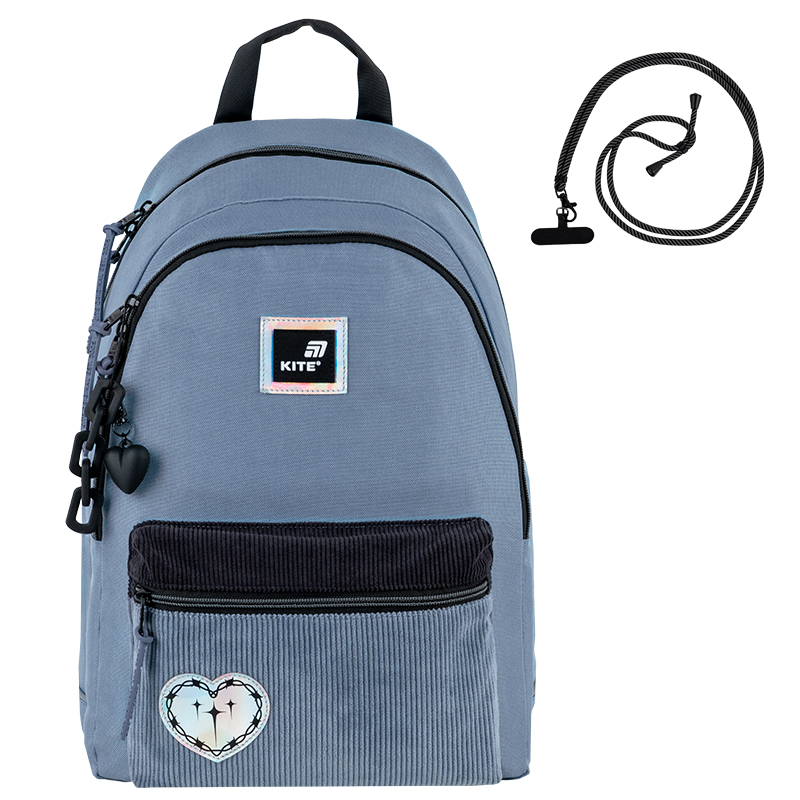
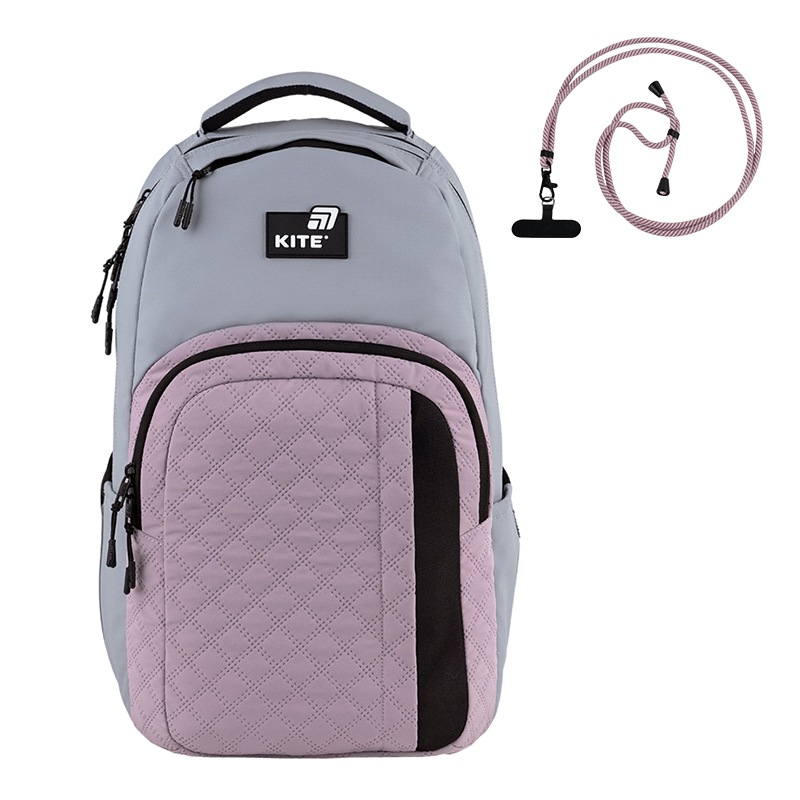
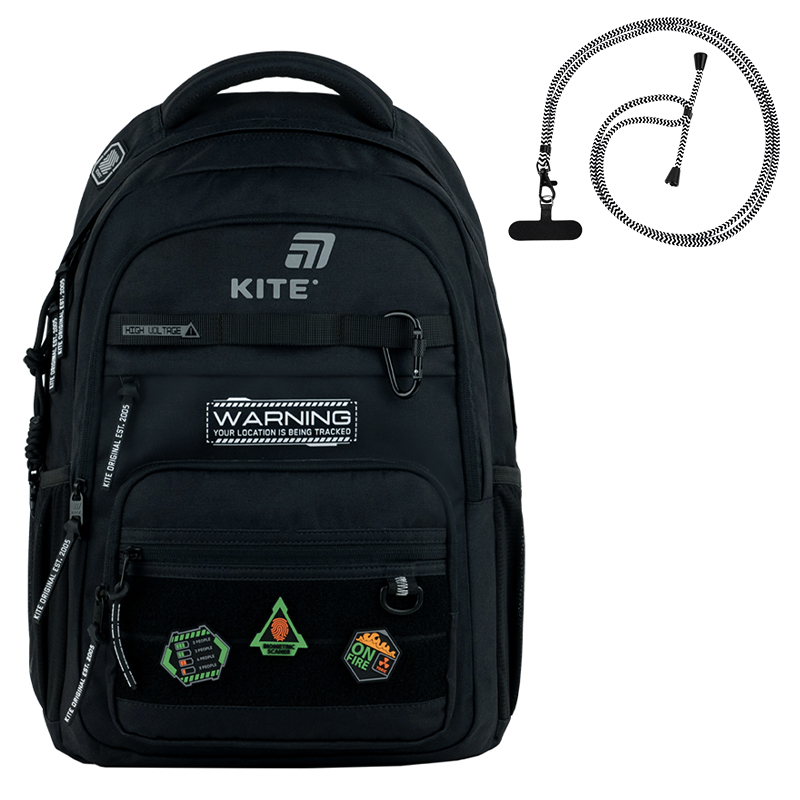
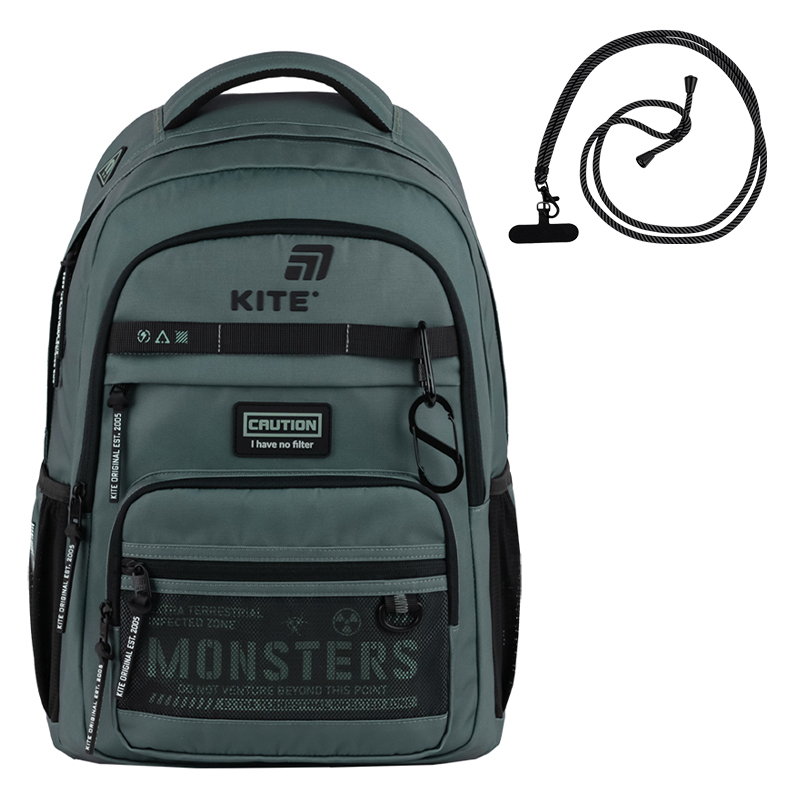
- 20–30 L fits most students (books, lunch, 15–16″ laptop).
- Keep total load within 10–15% of body weight (aim ~10%).
- Fit: top near shoulders; bottom at/above waist; use two straps (+ chest strap on heavy days).
- Key features: padded laptop sleeve, water-bottle pocket, compartments, reinforced bottom, reflective details.
Why Backpack Size Matters
The wrong backpack doesn’t just look awkward — it can cause back and neck strain. Health guidance recommends a backpack should weigh no more than 10–15% of a student’s body weight. That means choosing the right size is about more than capacity — it’s about health, posture, and comfort.
What size backpack is best for high school?
The ideal daily range for most teens is 20–30 liters. It holds books, binders, lunch, and a laptop without being bulky. Use the size guide below to choose the best fit.
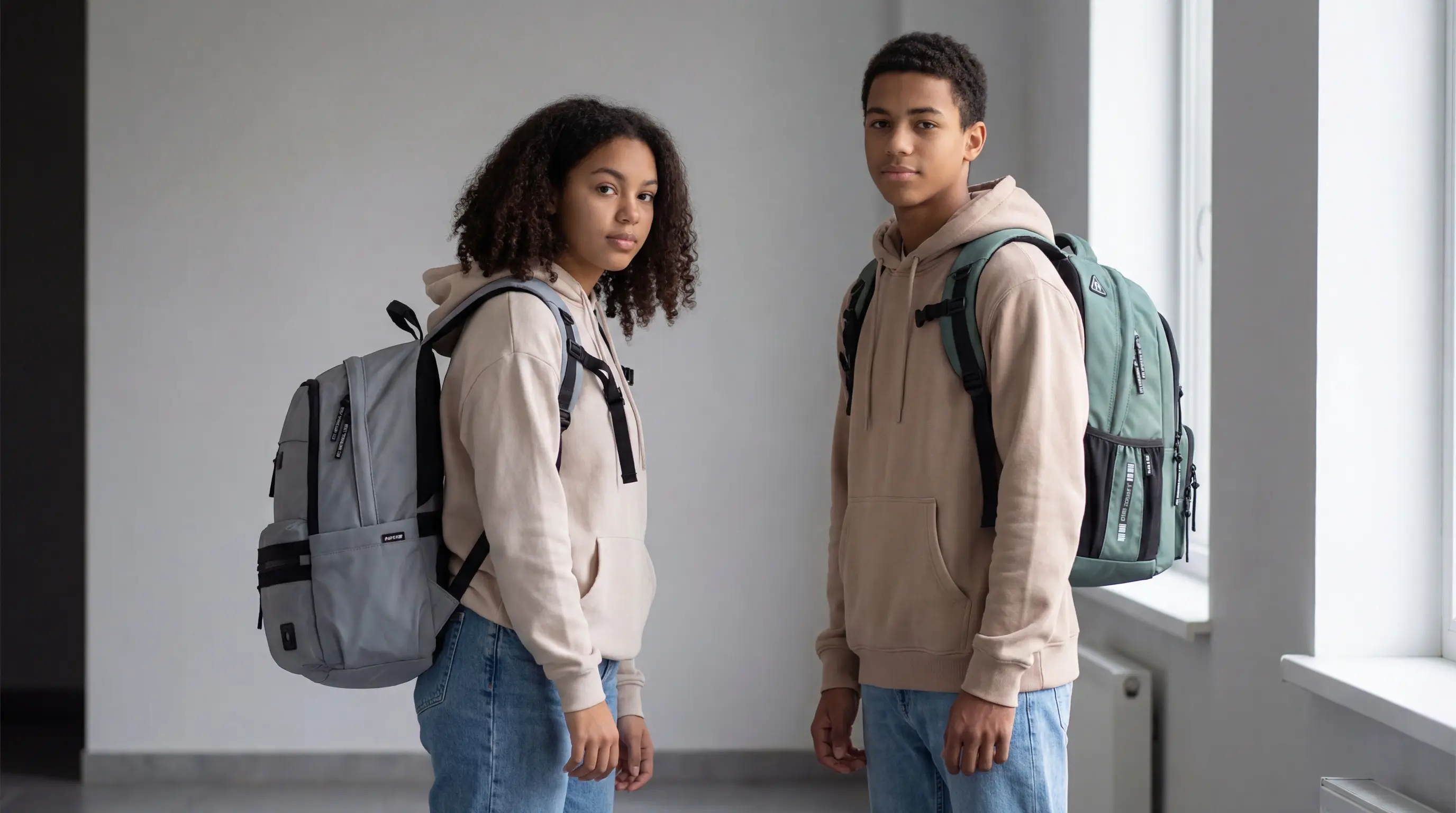
| Student profile | Typical height | Backpack height | Recommended capacity | Notes |
|---|---|---|---|---|
| Grade 9–10, lean carry | 155–170 cm (5'1"–5'7") | 42–46 cm (16.5"–18") | 20–24 L | Books, light sports gear, small laptop/tablet |
| Grade 10–12, daily laptop | 165–180 cm (5'5"–5'11") | 45–48 cm (18"–19") | 24–28 L | 15.6" laptop sleeve, binders, lunch, water bottle |
| Heavy schedule or sports | 175–190 cm (5'9"–6'3") | 46–50 cm (18"–19.5") | 28–32 L | Extra gym gear or lab equipment; consider chest strap |
See our curated selection of High School Backpacks with padded straps, orthopedic back panels, and water-resistant fabrics for Canadian & U.S. schools. For posture-first shopping, check the Ergonomic Kids’ Backpacks Guide (great background even for older students).
Ideal Backpack Volume for High School Students
Most students do best with 20–30 L. This range covers textbooks, notebooks, a laptop, lunch, and sometimes gym clothes or after-school activity gear.
- 20–24 L: Light school days with mostly digital materials
- 25–28 L: Ideal daily use for most high schoolers
- 29–30 L+: Sports/heavy academic tracks (STEM/art/music)
Fitting the Backpack to the Student
The backpack should rest just below the shoulders and sit at or slightly above the waist. If it drops lower than the tailbone, it’s too big. Adjustable padded shoulder straps, a padded back, and ideally a chest strap help balance the load across the body.
What High School Students Actually Carry
Real days are full: a laptop, several books, a pencil case, lunch, gym shoes, maybe a hoodie. The ideal backpack uses smart compartments so everything stays accessible without becoming a black hole.
Backpack Features That Matter (Beyond Size)
- Padded laptop sleeve: Protects devices
- Water bottle pocket: Hydration on the go
- Dividers & compartments: Prevent clutter and damage
- Reinforced bottom: Survives drops and daily wear
- Reflective elements: Safer commutes, early/late
Common Backpack Mistakes to Avoid
- Buying on style only — ignoring fit
- Using oversized 35–40 L travel bags for daily school
- Skipping padded straps — shoulder fatigue builds fast
- Forgetting weight distribution and compartments
You don’t have to choose between form and function. A good bag does both — especially with ergonomic school bags Canada options designed for everyday comfort.
Size Guide by Height (Quick Reference)
- 150–160 cm: 20–24 L backpack
- 160–170 cm: 25–28 L backpack
- 170–185 cm: 25–30 L backpack
- 185+ cm: up to 32 L if needed
Always prioritize fit over volume. Bigger isn’t always better.
Backpack Size & Safety — Quick Facts
- Optimal capacity for most high-school students: 20–29 L. Larger volumes (30–35 L) can suit “heavy-load” days (sports, labs).
- Safe backpack weight: Keep the load within 10–15 % of body weight (aim ~10 %).
- Proper fit and carry: Top near shoulders; bottom at or above waist. Use two padded straps; a chest strap helps distribute weight.
- Key features to look for: Padded laptop sleeve, water-bottle pocket, organization, reinforced bottom, reflective details.
Tip: If you regularly need more than 30 L, reassess what you're carrying (use a locker, digitize materials), or consider a rolling backpack if allowed.
Our Top Picks for High School Students
- Urban Classic 25L: Sleek lines, multiple compartments
- Kite K25-1022M-3: Ergonomic, organized, customizable with badges
- Kite LP25-501S: Certified orthopedic design, great for smaller frames
Final Thoughts
Choosing the right backpack size for high school is about balance — not just what fits, but what supports your student through the day. From class to practice, the right bag keeps them organized, confident, and pain-free.
Don’t guess — measure, check capacity, and choose smart features. Your student’s back (and attitude) will thank you.
Shop Our Full Range — Free Canada-Wide Delivery
Discover High School Backpacks, Lunch Boxes, and Bottles — shipped fast from Toronto.
Browse All BackpacksHigh School Backpack Size – FAQ
What capacity works for most high school students?
20–30 L covers daily books, lunch, and a laptop. Choose the lower end for minimal loadouts, higher for busy schedules.
How should a backpack fit on the back?
The top should sit near the shoulders; the bottom should not fall more than a few inches below the waist. Tighten straps for even weight.
Do I need a chest strap or padded back panel?
They improve posture and comfort for heavy carries or long commutes. Look for padded straps, an orthopedic back panel, and reflective details.
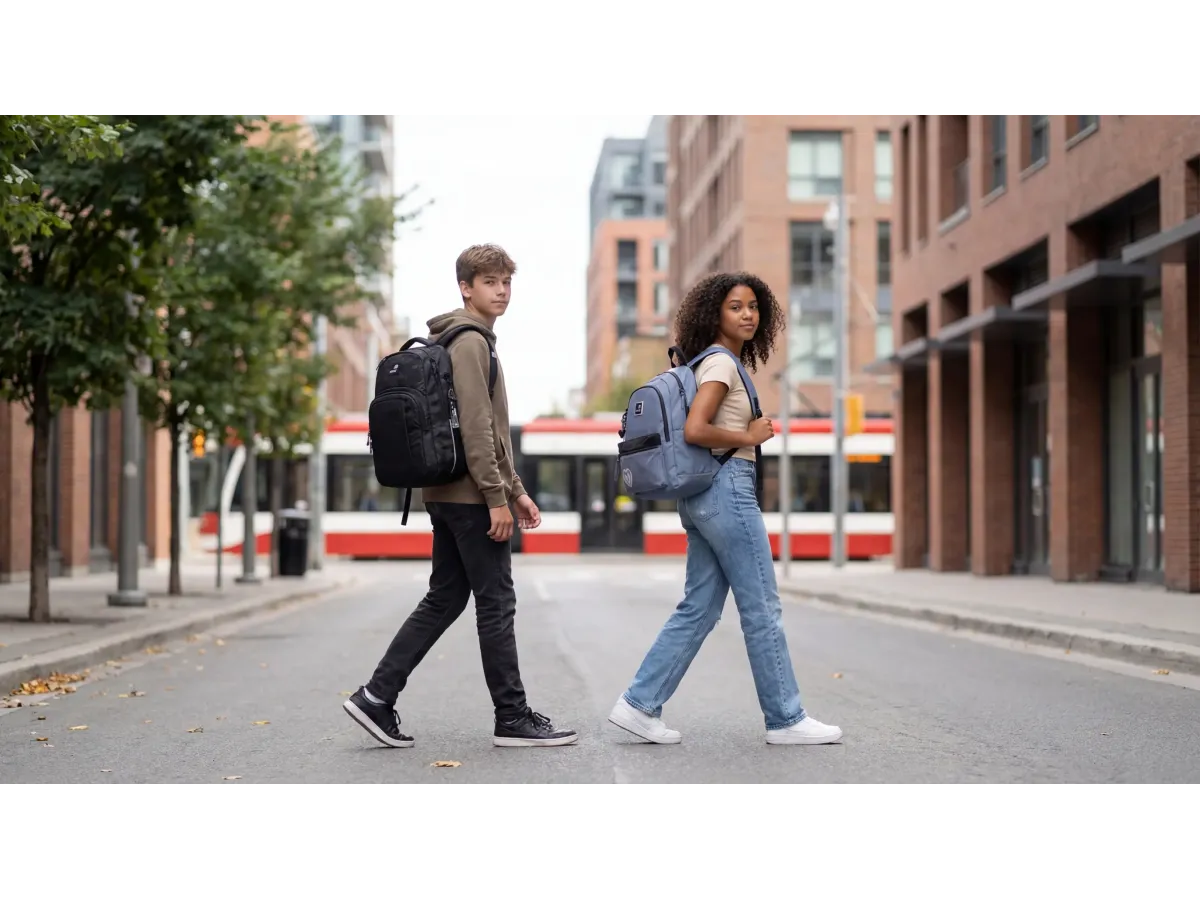

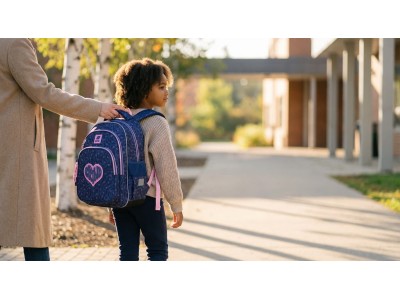
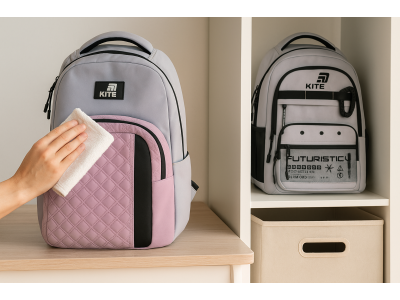


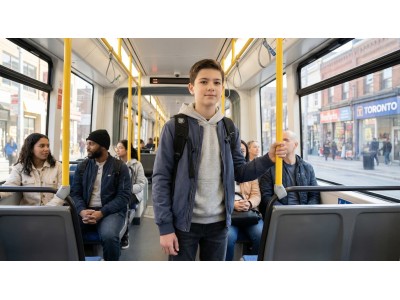
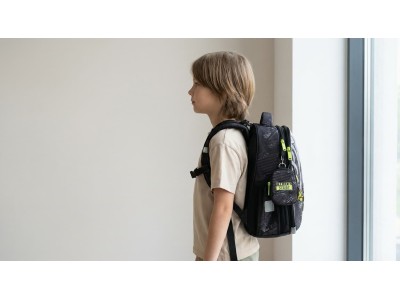
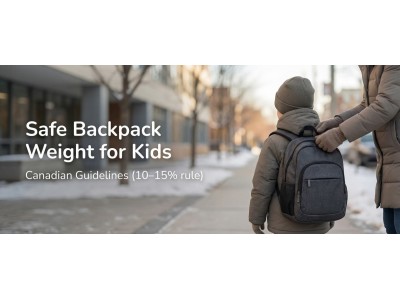
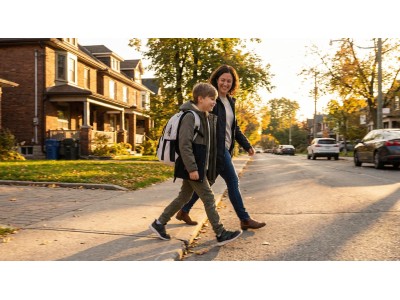

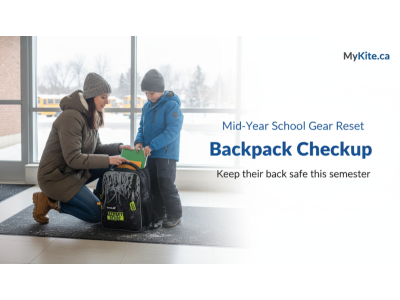
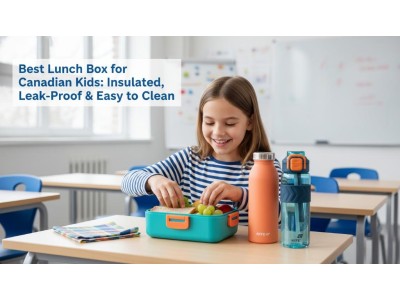
Write a comment